The Day of the Jackal hits right on target
Eddie Redmayne is particularly well chosen as the Jackal in this slick, astutely engineered adaptation of Frederick Forsyth’s thriller.
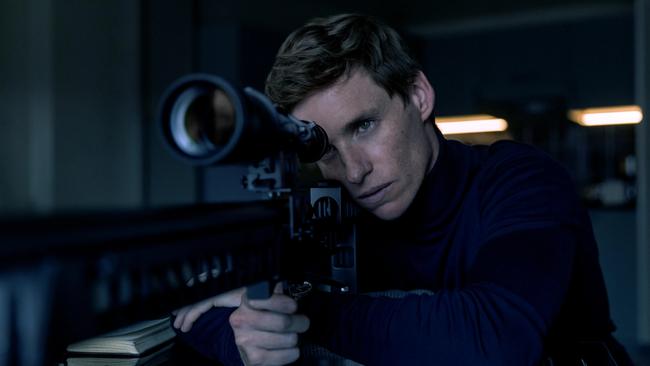
‘I don’t travel a lot now, but in railway carriages, where we used to sit and talk to each other, or look out at the passing landscape, today everyone is staring at the palm pilot in their hand or sharing their secrets with us with their phone on speaker,” the writer Frederick Forsyth said recently in an interview with The Telegraph. “Nothing is secret anymore.”
The legendary writer of espionage thrillers is 86 and he was promoting a new TV adaptation of his famous novel, The Day of the Jackal, which, published in 1971, was most certainly about secrecy and those that clandestinely inhabit a world of predators and prey.
Written in just 35 days on an old typewriter, it became an international bestseller and gained its author the Edgar Allan Poe Award for Best Novel. In this book, the Organisation Armee Secrete, a French dissident group opposed to Algiers’ independence, hires an unknown assassin, with a gift for secrecy, to kill then-French president Charles de Gaulle.
“Before, thrillers were self-evidently works of the imagination,” the spy novelist Charles Cummins wrote in an appreciation when the novel turned 40. “Forsyth changed all that; never before had a popular novelist created a world that seemed indistinguishable from real life. His debut had a documentary sense of realism that all but convinced the public they were reading a work of non-fiction.”
Cummins noted that when published the novel bore the inscription, “Sweeping the country, the novel that may not be one!”
Best-selling Lee Child says Forsyth put “a huge millstone” on the shoulders of other thriller writers. “We all had to perform to that same level. There was a movement throughout thriller writing to concentrate on the detail, the research.”
The Day of the Jackal was also known as “the Assassin’s Manual” after it was linked to the killing of Israeli Prime Minister Yitzhak Rabin in 1995 by Yigal Amir, as well as a failed assassination attempt on George W Bush 10 years later. It even earned the Venezuelan terrorist “Carlos the Jackal” his nickname after a copy of the book was reported to have been found among his possessions.
Although as Cummins says, “That The Day of the Jackal has become a handbook for maniacs should not be the book’s legacy. Few writers can claim to have changed the literary landscape. Forty years ago, a penniless British journalist, unwittingly or not, did just that.”
This is the third major adaptation of Forsyth’s best-selling novel, following the classic, painstakingly detailed 1973 film, directed by Fred Zinnemann, and the disappointing version from 1997 starring Richard Gere and Bruce Willis. Forsyth even filed an injunction to keep the film from using the same title as his book.
Described as a “contemporary reimagining”, this version is from the UK’s Carnival Films, the production company behind Downton Abbey, Agatha Christie’s Poirot and Belgravia. Carnival saw a “natural synergy” with The Day of the Jackal, says Nigel Marchant, the company’s managing director, one of the executive producers of the series. “It’s quintessentially British, but it needed to feel global and stand up to the best shows in the world.”
Carnival’s Gareth Neame, another highly experienced producer of shows such as Spooks, Hustle and New Tricks, is also an executive producer.
And what he and his colleagues give us is a slick, astutely engineered thriller, an entertaining orchestration of committed performances, stunt work and fluid, sometimes mesmerising, camera skills worthy of any Bond movie.
It helped that Carnival had access to the rights via sister company Universal Pictures. “But we sat on the idea for a while, to work out how to protect the original brand while making it better,” says Marchant. Also helping is a hefty budget of more than £100m ($193m), enabling the production, a genuine high-end drama designed for a global audience, to shoot in Munich, Paris, London, Sweden, Northern Ireland and Cadiz.
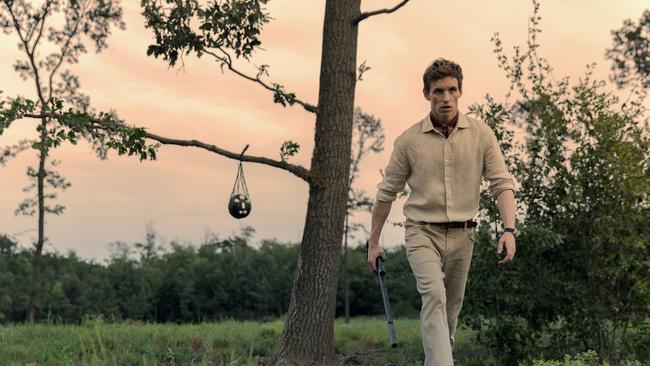
The creator and writer is Ronan Bennett, best known for the gang-related crime drama TV series Top Boy, and director is experienced Brian Kirk from series as diverse as Game of Thrones, Boardwalk Empire and Luther. Forsyth, also an executive producer, was enthusiastic and supportive of the changes needed to upgrade and update the story, according to Marchant.
The remake stars Oscar-winner Eddie Redmayne as the shapeshifting hit man, master of disguise, wonderfully portraying the Jackal’s controlled detachment, with a deadpan sociopathic charm. He’s only involved emotionally with the vintage chess sets he collects and his young wife Nuria, played by Ursula Corbero, living with their young son at a lavish compound in Cadiz, Spain.
Redmayne is particularly well chosen as the Jackal as he naturally possesses a quiet inscrutability, his face friendly and honest, and rather ordinary – it’s believable that he can worm his way in and out of any situation that arises. (There’s an excellent sequence where he’s held up at Customs testing his control and patience.)
He’s human enough to be likeable; brave enough to be admirable. His targets, except for the collateral damage, largely deserving of the sniper’s fate. He scurries up ladders, rappels down buildings, runs like Jason Bourne, stalks and is stalked – and does it all with Zen-like precision. And kills without conscience.
His antagonist and nemesis is MI5’s up-and-coming weapons expert Bianca Pullman played by Lashana Lynch, who earned international attention as the first black female 007 in No Time to Die. Skilled in combat, espionage trade craft and subterfuge, Pullman also has a life as a mother and wife, which she struggles to balance with her clandestine career. It’s not easy being a spook.
Her husband Paul (Sule Rimi) and their daughter Jasmine (Florisa Kamara) appear to have no idea what Bianca does for a living and those unexpected phone calls always drag her way without explanation.
The series starts globetrotting in Munich with the assassination of a corpulent German far-right politician in a complex nine-minute sequence, in which Bennett’s cameras barely stop moving. It’s superbly done, as is the Jackal’s disguise.
We see him donning the persona of a well-placed janitor, placing a silencer on his handgun, and practising his German with a recording in a dingy room. The real janitor called Ralf, we later learn, is dead on a sofa as the Jackal prepares, a cord wrapped around his neck.
Everything in Its Right Place by Radiohead plays in the background, first of some aptly chosen songs on the soundtrack. The detail is mesmerising – like a good heist movie we’re given not only the Jackal’s clever disguise but state-of-the-art tech, all details orchestrated with precision.
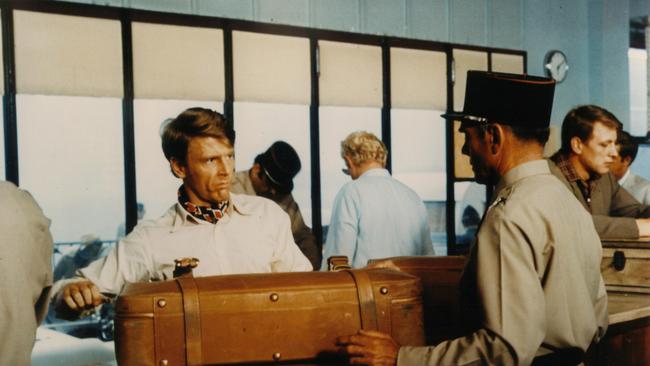
The street below is full of posters for the politician called Manfred Fest, the current frontrunner for the vacant job of German chancellor, who we assume is the assassin’s target. The Jackal makes his way to a huge office complex where he shoots the politician’s son, a ruse to attract Fest to the hospital Ralf’s room overlooks.
Back there this master of disguise takes off his mask, ripping away the complex layers of prosthetics. He then prepares a bespoke sniper’s rifle – part of his carry-on suitcase – for the assassination attempt. (As an MI5 official remarks later, “A rifle in two parts is the sniper’s dream”.)
It’s the first of what will obviously become an obsession with beautifully concealed weaponry provided by the Jackal’s seemingly anonymous armourer. So James Bond; so Frederick Forsyth.
Our Jackal takes out Fest with pinpoint accuracy, a shot that MI5 later determines travels 3850 metres. A world record for a sniper. Detected by the military on the street, he vanishes after leaving a bomb to welcome the SWAT team.
Kirk reveals himself as a superb action mechanic delivering a sense of rocketing pace and terrifying plausibility. The opening minutes speed along, taking us to the magnificent Bondesque title theme of This Is Who I Am by the British singer-songwriter Celeste.
It’s a lush, velvety, vocal-led arrangement, with lyrics reinforcing the Jackal’s sense of self-confidence and certainty. This will be a hard man to stop. Cinematographer Christopher Ross’s gloriously vivid photography give the series’ beginning a nightmarish hue that’s hard to forget. As Celeste sings so magnificently, it’s time to take a breather.
So, we begin to follow the cat-and-mouse narrative as Lashana Lynch’s Bianca begins to lead the MI5 crew in pursuit. As an armourer, she knows how gun assembly works and begins to determine just who may have supplied the weapon, an Irish “killer of Catholics” in her sights. And the Jackal works on his next case, ducking in and out of internet cafes, promised “superlative renumeration”.
“At 85, it really is every day as it comes,” Forsyth says. “I don’t think I’d want to be remembered for a book, but for being what I was – two phrases: he loved his country; and he did what he could.”
Well, it’s hard to know if the Jackal cares for Old Blighty but he certainly knows what he’s capable of; it’s going to be fascinating to see just how Bianca Pullman can stop him.
The Day of the Jackal streaming on Binge.


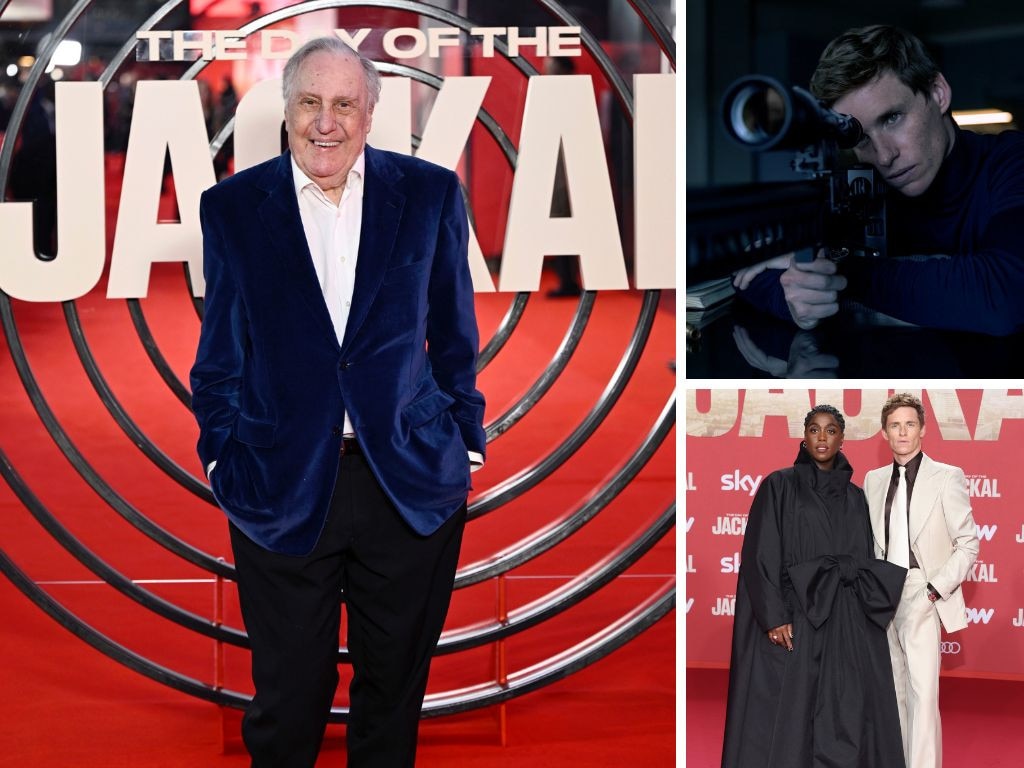

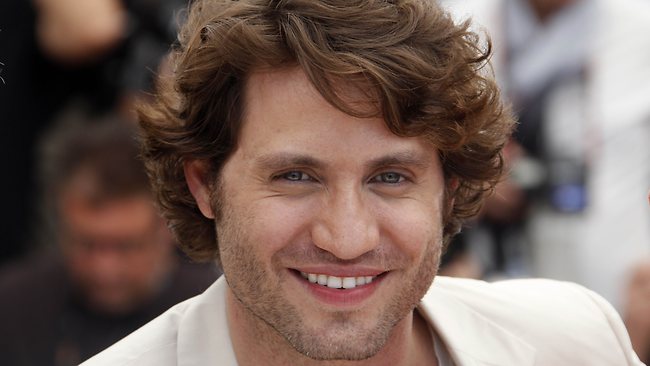
To join the conversation, please log in. Don't have an account? Register
Join the conversation, you are commenting as Logout